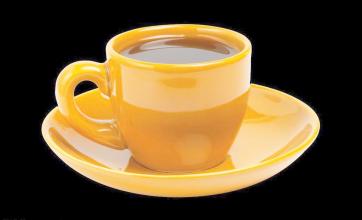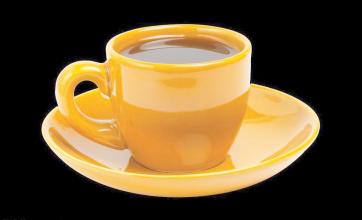The function of drinking coffee what can coffee grounds be used for
one. As we all know, drinking coffee is refreshing. Caffeine can stimulate the central nervous system, make the mind more clear, full of thinking ability, focus, and improve work efficiency. But drinking too much coffee can produce jitters similar to stimulants. For people with anxiety disorders, caffeine can worsen symptoms such as sweaty palms, palpitations and tinnitus. two. Increase hypertension, dilate blood vessels and promote blood circulation. However, for people suffering from hypertension, coronary heart disease, arteriosclerosis and other diseases, drinking coffee for a long time or in large quantities can cause cardiovascular disease. three. Caffeine stimulates stomach and intestines to secrete gastric acid, which can promote intestinal peristalsis, help digestion, prevent gastroptosis and quickly defecate. But for patients with stomach problems, drinking too much coffee can cause stomach problems to worsen. Try to avoid drinking coffee on an empty stomach. four. Caffeine can make muscles contract freely and improve motor function. At the same time, it can relieve fatigue. five. Coffee has the effect of antioxidation and helps to prevent cancer and anti-aging. Anti-dementia. six. Caffeine can promote kidney function, expel excess sodium ions from the body and increase urination. However, the diuretic effect is easy to cause bone loss, especially for women after menopause is likely to increase the threat of osteoporosis. seven. The linoleic acid contained in coffee has the effects of hemolysis, preventing thrombosis, enhancing vasoconstriction, relieving migraine and reducing the risk of stroke. eight. Nicotinic acid in coffee contains vitamin B, which is higher in roasted coffee beans. But coffee has a destructive effect on vitamin B1, which can maintain the balance and stability of the nervous system. nine. Coffee has the function of relieving alcohol. Drinking coffee after drinking alcohol will quickly oxidize the acetaldehyde converted from alcohol, decompose it into water and carbon dioxide and discharge it out of the body. But wine and coffee are generally not allowed to drink at the same time. After alcohol is absorbed, it will affect the function of gastrointestinal, heart, liver, kidney, brain and endocrine organs, resulting in a disorder of substance metabolism in the body, and the brain will gradually enter a highly inhibitory state from excitement. On the other hand, drinking coffee can make the brain highly excited, and the opposite effect can interfere with brain function, stimulate vasodilation, speed up blood circulation, and increase the burden on the heart, which is more harmful than drinking alone. ten. Prevent gallstones. Caffeine can stimulate the contraction of the gallbladder and reduce the cholesterol in which bile content is easy to form gallstones. eleven. Caffeine maintains levels of dopamine in the brain, a neurotransmitter that allows brain cells to transmit information. Parkinson's disease is associated with a lack of dopamine in the brain. twelve. Although some studies have shown that coffee can help fight a variety of cancers, other studies have suggested that drinking too much coffee itself can lead to cancer. thirteen. Improve dryness of the eyes. This is mainly related to the purine ingredients in coffee (purine-containing eye drops that stimulate glands to secrete fluid and have some protective effect on the eyes). But the diuretic effect of coffee will aggravate the loss of water in the body. fourteen. Pain relief. Headache caused by a good night's sleep, or pain caused by vasoconstriction on the temple side, pain caused by these non-organic factors, can be relieved with coffee. fifteen. Patients with liver disease should not drink coffee. In general, normal adult caffeine metabolism takes 2 hours, but in patients with liver disease or liver dysfunction, caffeine metabolism may take 4-5 hours. Coffee mixed with milk produces an unstable and indigestible emulsion, causing damage to the liver. sixteen. Pregnant women should not drink too much coffee, mainly because pregnant women and fetuses metabolize caffeine slowly, and caffeine stays in the body for a long time. Children under 12 years old have incomplete development of liver and kidney, poor detoxification ability and long metabolism of caffeine, so it is not suitable to drink coffee.

Important Notice :
前街咖啡 FrontStreet Coffee has moved to new addredd:
FrontStreet Coffee Address: 315,Donghua East Road,GuangZhou
Tel:020 38364473
- Prev

Does coffee have health and health benefits? Panamanian manor coffee beans
Three cups of coffee a day can prevent gallstones. For caffeinated coffee, it stimulates gallbladder contraction and reduces cholesterol, which is prone to gallstones. The latest Harvard University researchers found that men who drank two to three cups of coffee a day were less than 40% likely to get gallstones. . Drinking coffee regularly can prevent radiation damage. Radiation injury, especially the radiation of electrical appliances, has become an eye.
- Next

The role of caffeine in Arabica Coffee and its advantages and disadvantages
The caffeine in coffee is difficult to dissolve in cold water, but easily soluble in hot water. Caffeine stimulates the cerebral cortex, eliminates drowsiness, increases feeling and thinking, and can be used as a cardiotonic agent to regulate heart function, as well as dilating kidney blood vessels and diuresis. However, caffeine is not just coffee. Usually a cup of coffee
Related
- Does Rose Summer choose Blue, Green or Red? Detailed explanation of Rose Summer Coffee plots and Classification in Panamanian Jade Manor
- What is the difference between the origin, producing area, processing plant, cooperative and manor of coffee beans?
- How fine does the espresso powder fit? how to grind the espresso?
- Sca coffee roasting degree color card coffee roasting degree 8 roasting color values what do you mean?
- The practice of lattes: how to make lattes at home
- Introduction to Indonesian Fine Coffee beans-- Java Coffee producing area of Indonesian Arabica Coffee
- How much will the flavor of light and medium roasted rose summer be expressed? What baking level is rose summer suitable for?
- Introduction to the characteristics of washing, sun-drying or wet-planing coffee commonly used in Mantenin, Indonesia
- Price characteristics of Arabica Coffee Bean Starbucks introduction to Manning Coffee Bean Taste producing area Variety Manor
- What is the authentic Yega flavor? What are the flavor characteristics of the really excellent Yejasuffi coffee beans?

